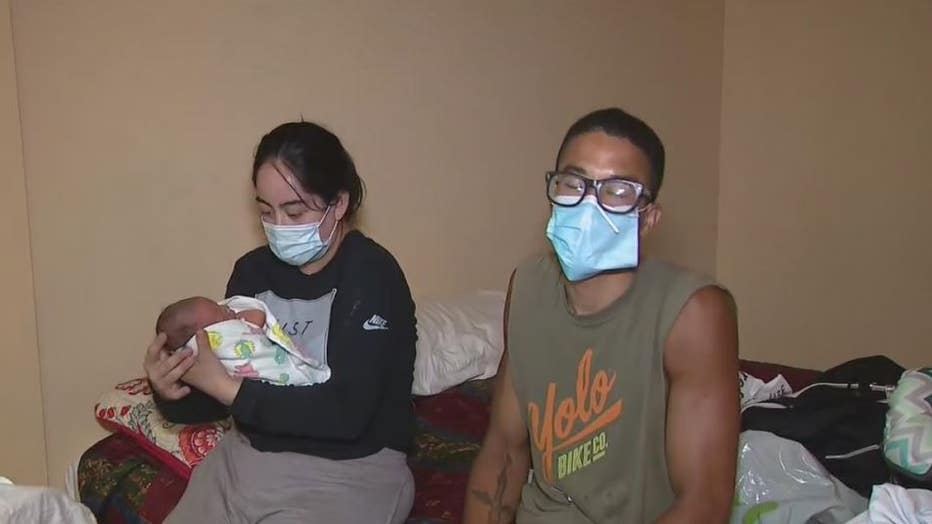Homeless veteran delivers his own baby in the car he and his wife are living in
VAN NUYS, Calif. - Caleb Harris served in the US Forces, and was going to college and working when COVID-19 hit.
His courses went online, but he did not have a laptop, so he lost the GI Bill money he was getting to go to school, which was also helping out with
expenses.
Then he found out his wife was pregnant with their first baby. At least the furniture moving company he was working with kept the 28-year-old employed, but the money just wasn’t enough.
They started living out of their cars. He had applied for Section 8 housing, and any veterans program he could think of, but the days, then weeks passed on.
He sent his wife with family in San Francisco for a while, but she eventually returned to be with him, thinking they were about to get help and she had time.
She started feeling contractions at 2 in the morning, on a weekend, halfway through the 8th month. By the time she woke Caleb up, her water broke and the placenta was out. Paramedics were on the phone with the father, who was holding the baby’s head as he describes it "a little arm reached out, and this tiny hand hung on to mine and before I knew it, he pulled himself out”.

Hospital staff called social workers, and we all got on the phone. If there was ever a case that fit programs like project Room Key, which is designed to help homeless people during the COVID-19 pandemic, this was it. Baby was healthy, as was mom. Dad has a job, and what they needed was breathing room. So, we all got on the phones!
RELATED: Gov. Newsom attempts to fix California's 'failure' to address homelessness with buying motel rooms
Council person Nury Martinez reached out to LAHSA, the LA Homeless Services Authority. They reached out to Veterans Affairs and one of their San Fernando Valley providers (the family has been living in a Sun Valley homeless encampment).
It worked, they had a motel room by the time they were discharged from the hospital.
RELATED: First San Fernando Valley bridge home site opens with Alex Trebek's support
“Sometimes, people get caught in the fringes of the program, applications don’t go through, or they get tired of the program” say LAHSA officials. They are worried, and so is Martinez, because the rent assistance program that began with the COVID-19 epidemic is about to expire. They expect more families to lose their homes.
The latest LAHSA homeless count numbers are scary.
Families needing shelter help has risen by 39%, reflecting the financial pressures on low income families. A minimum wage earner would need to work 79 hours a week to afford a basic no frills apartment in Los Angeles. That’s if they can afford the safety deposits.
COVID-19 restrictions continue, if you want to find out more about programs to help, go to LAHSA.org.
Get breaking news alerts in the FOX 11 News app. Download for iOS or Android.

